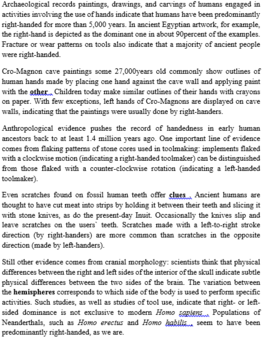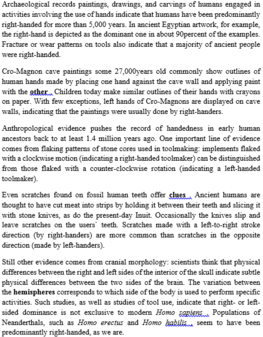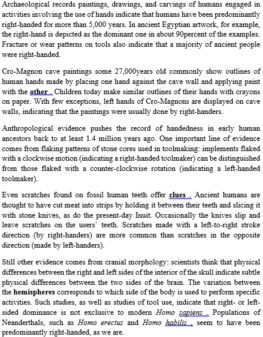Read the following passage and mark the letter A, B, C, or D on your answer sheet to indicate the correct answer to each of the questions from 36 to 43.
The difference between the nuclear family and the extended family is that a nuclear family refers to a single basic family unit of parents and their children, whereas the extended family refers to their relatives such as grandparents, in-laws, aunts and uncles, etc. In many cultures, and particularly indigenous societies, the latter is the most common basic form of social organization.
A nuclear family is limited, according to Kristy Jackson of Colorado State University, to one or two parents (e.g. a father and mother) and their own child, or children, living together in a single house or other dwellings. In anthropology, they only must be related in this fashion; there is no upper or lower limit on the number of children in a nuclear family.
The extended family is a much more nebulous term, but in essence refers to kin or relations not covered by the above definition. In historical Europe and Asia as well as in Middle Eastern, African, and South American Aboriginal cultures, extended family groups were typically the most basic unit of social organization, The term can differ in specific cultural settings, but generally includes people related in age or by lineage.
Anthropologically, the term "extended family" refers to such a group living together in a household, often with three generations living together (grandparents, parents, and children) and headed in patriarchal societies by the eldest man or by some other chosen leadership figure. However, in common parlance, the term "extended family" is often used by people simply to refer to their cousins, aunts, uncles, and so on, even though they are not living together in a single group.
What is the passage mainly about?
A. The dominance of nuclear families over extended ones
B. The dominance of extended families over nuclear ones
C. A distinction between nuclear families and extended ones
D. The changes of family types over times






Đáp án C
CHỦ ĐỀ FAMILY
Ý chính của bài là gì?
A. Sự vượt trội của các gia đình hạt nhân so với các gia đình mở rộng.
B. Sự vượt trội của các gia đình mở rộng đối với các gia đình hạt nhân.
C. Sự khác biệt giữa các gia đình hạt nhân và các gia đình mở rộng.
D. Sự thay đổi của các loại gia đình theo thời gian.
Thông tin:
Đoạn 1: The difference between the nuclear family and the extended family is that...
Đoạn 2: A nuclear family is limited...
Đoạn 3: The extended family is...
Đoạn 4: Historically, most people in the world have lived in extended family groupings rather than in nuclear families.